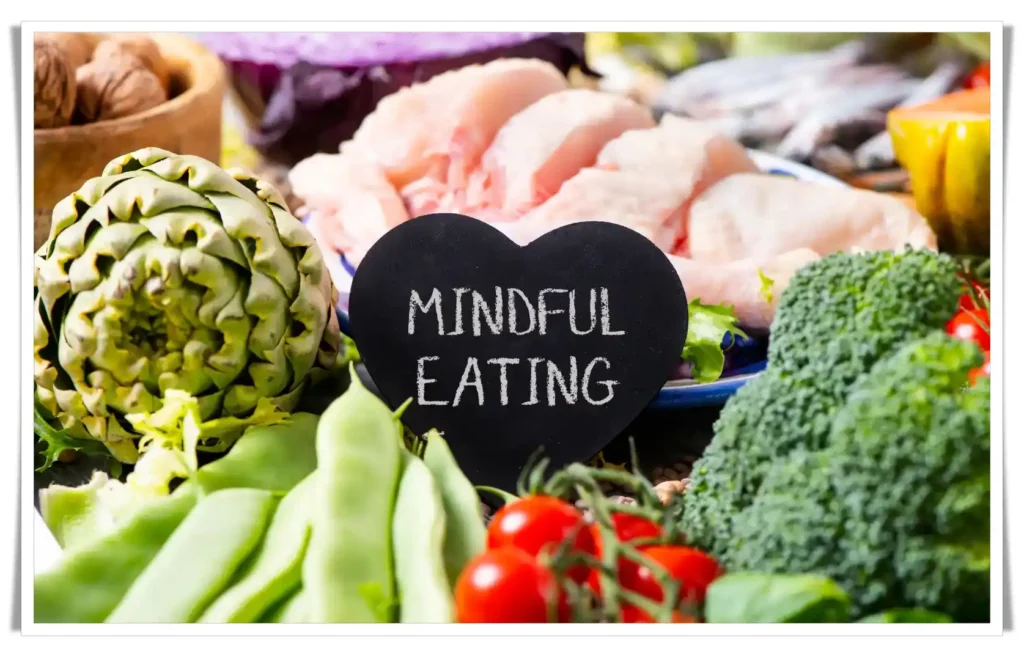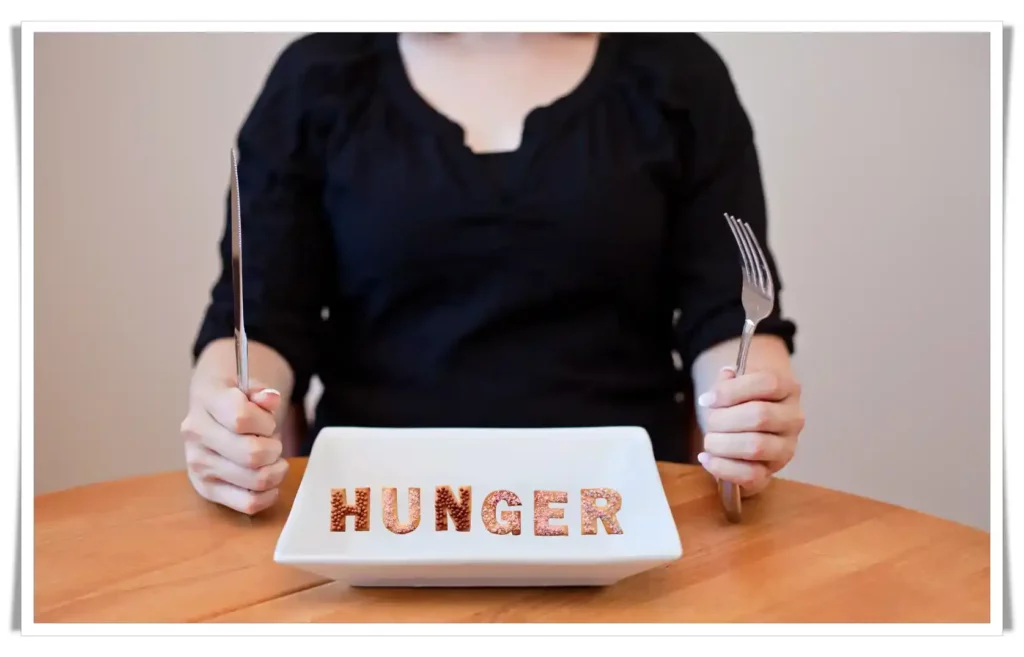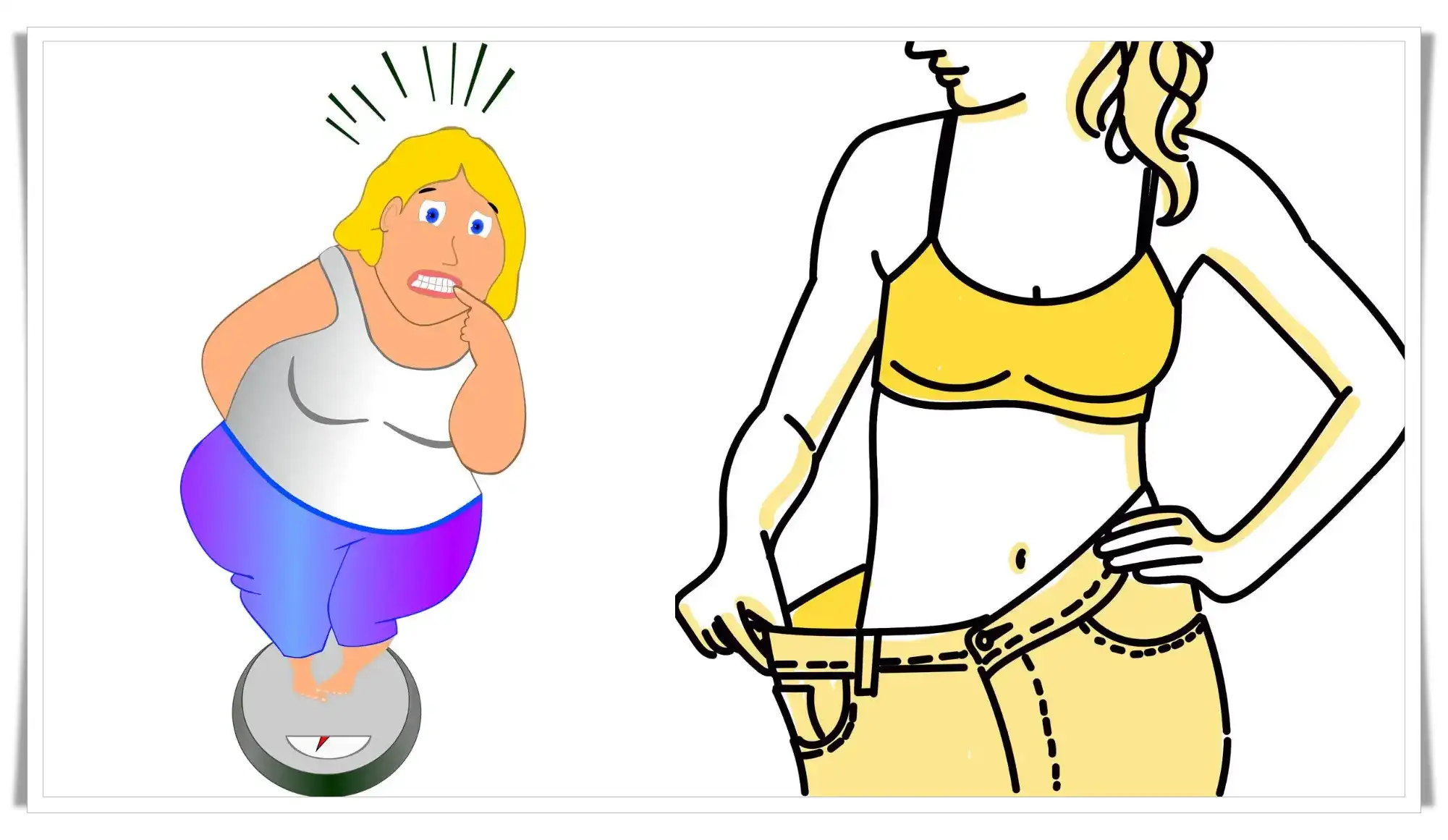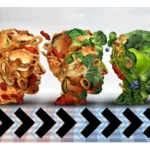Introduction
As we navigate our journey to better health and well-being, we must reconsider our approach to weight management. Most often, we focus on losing weight as the be-all and end-all of healthier living. However, the paradox we must confront is that to lose weight on the scale, we need to gain weight in our everyday life. But what does this mean?
Empower Your Health Journey – Explore My Free Apps for a Vibrant, Healthier Lifestyle Today!
Mihaela Bilic, a renowned nutritionist, shed light on a vital concept in psycho-nutrition, suggesting that we often eat to quell emotional unrest rather than to satisfy physical hunger. The truth is, to truly lose weight and keep it off, we must explore the depths of our relationship with food and the emotional weight we carry that often leads to overeating. We hope this blog post inspires you to reassess your weight loss strategies and encourages you to invest more deeply in your overall well-being, mentally and physically.
Our Emotional Connection to Food: A Deeper Understanding
Embarking on our exploration of gaining weight in our everyday life, it's essential to first delve into the fascinating science behind our relationship with food. This connection, far from being purely physical, is profoundly interwoven with our emotions, shaping our eating behaviors and ultimately impacting our weight.
The key study that illuminates this relationship is aptly titled, The Neuroscience of Overeating. This research brings our emotional connection with food under the scientific lens, shedding light on how our emotions and brain structures influence our eating patterns.
The researchers discovered that emotional eating, a response to stress or intense emotions, is intimately linked to modifications in specific brain regions. The alterations occur in areas that control reward and stress responses, effectively lowering the threshold for overeating. Consequently, these changes can increase the likelihood of overeating, leading to weight gain over time.

This insight is crucial as it underlines that our emotions can exert a significant influence on our eating behaviors. It highlights that we often find ourselves eating not in response to a grumbling stomach or the body's need for nutrition, but to an entirely different kind of hunger - emotional hunger. We reach out for comfort foods when we're feeling down, stressed, or even bored, using food as a source of solace and a tool to cope with our emotional ups and downs.
However, as comforting as this might feel in the moment, emotional eating can, unfortunately, undermine our weight loss efforts. Overeating driven by emotions rather than physical hunger can lead to consuming more calories than the body needs, resulting in weight gain. Even more critically, emotional eating often involves foods high in sugar, fat, and calories, and low in essential nutrients. These eating patterns, therefore, not only contribute to weight gain but can also affect our overall health adversely.
This profound emotional weight we carry thus stands as a formidable barrier to weight loss. It's a burden that goes unnoticed often, yet it silently sabotages our efforts to maintain a healthy diet and reach our weight loss goals. Recognizing this emotional weight is the first step towards addressing it and moving forward on our journey toward a healthier lifestyle.
Emotional Weight and Physical Weight: An Intricate Connection
The notion of emotional weight and its consequential impact on our physical weight is a compelling concept, deeply rooted in our understanding of human behavior and eating habits. As Bilic so aptly pointed out, we tend to express unacknowledged emotional realities through our interactions with food. Our emotional state can, and often does, affect our food choices, eating patterns, and ultimately, our weight.
Many of us, consciously or unconsciously, rely on food as a form of emotional escapism. Whether dealing with stress, anxiety, sadness, or even feelings of boredom, we tend to seek solace in food as a coping mechanism. This behavior pattern can create a self-perpetuating cycle, where uncomfortable emotions trigger overeating, leading to weight gain, which then triggers further negative emotions and even more emotional eating. It's a cycle that can feel impossible to break, with each turn reinforcing our reliance on food for emotional support.

Yet, it is precisely this cycle that we must strive to interrupt if we wish to manage our weight effectively and foster overall well-being. But how do we go about this? The answer lies in what we refer to as "gaining weight" in our everyday lives. It might sound counterintuitive, but this form of "weight gain" is far from the physical interpretation of the term.
This "weight" is a metaphorical one, signifying the need to build emotional resilience and psychological well-being. It involves acquiring a greater capacity to navigate life's inevitable challenges and stressors without resorting to emotional eating. Emotional resilience involves the ability to bounce back from setbacks and adapt to change, which can reduce the tendency to turn to food for comfort. Similarly, bolstering psychological well-being can equip us with healthier coping mechanisms, creating a stronger foundation for maintaining a healthy diet and lifestyle.
Cultivating emotional resilience and psychological well-being necessitates a deep commitment to personal growth. It requires developing self-awareness to identify emotional triggers for overeating, building emotional regulation skills to manage these triggers effectively, and nurturing self-compassion to treat ourselves kindly during the weight loss journey.
In essence, gaining this emotional and psychological "weight" is about enhancing our ability to cope with the trials and tribulations of life. It's about developing emotional strength and mental fortitude, which can buffer against the tendency to reach for food when emotional storms hit. It's about gaining emotional balance in our lives, and in doing so, facilitating a healthier relationship with food that supports our weight loss goals.
Gaining Emotional Weight: A Powerful Investment in Well-being
When we speak about gaining emotional weight, we are referring to a deep and meaningful investment in ourselves. It's about acknowledging the critical role our mental health, emotional resilience, and self-awareness play in our overall well-being and our journey toward weight loss. This form of 'weight gain' in our daily life acts as an anchor, grounding us amidst life's whirlwinds and equipping us with the resilience to overcome obstacles.

Engaging in therapy is an excellent starting point on the path of gaining emotional weight. Therapists are trained professionals who can guide us in exploring our emotional triggers and helping us develop healthier coping strategies. Cognitive Behavioural Therapy (CBT), for example, is particularly effective in this regard. This therapy modality focuses on identifying and challenging unhelpful thought patterns that may lead to emotional eating and replacing them with healthier alternatives.
Similarly, mindfulness practices are instrumental in cultivating a greater sense of self-awareness. The art of mindfulness encourages us to live in the present moment and acknowledge our feelings without judgment. By applying this practice to our eating habits, we can learn to distinguish between physical hunger and emotional hunger, helping us respond appropriately to each. Mindful eating practices can also enhance the enjoyment of food and promote satisfaction with smaller portions, supporting weight management.
Self-care activities are another avenue through which we can nurture our emotional well-being. However, self-care isn't just about indulging in relaxing activities; it's also about setting boundaries, managing stress, getting adequate sleep, and taking care of our physical health through regular exercise and a balanced diet. All these actions contribute to emotional resilience and can help reduce our reliance on food as a source of comfort.
Addressing the root cause of emotional eating is a challenging task but an essential one. It enables us to understand why we turn to food for comfort and provides us with the tools to manage these triggers more effectively. By doing so, we can transform our relationship with food from a source of emotional comfort to a source of physical nourishment.
Achieving this shift supports long-term, sustainable weight loss. Rather than fluctuating between dieting and overeating, we can develop a balanced and sustainable eating pattern that promotes overall health. Furthermore, by enhancing our emotional well-being, we not only support weight loss but also improve our quality of life, leading to increased happiness, productivity, and self-esteem.
In essence, gaining emotional weight is about creating a buffer, a form of protection against the emotional turbulence that can lead to overeating and weight gain. It's about strengthening our emotional and psychological defenses, not just for the sake of weight loss, but for the overall enhancement of our well-being. This investment in ourselves, though requiring time and effort, reaps dividends that extend far beyond the scale, enriching every facet of our lives.
Practical Steps to Gain Emotional Weight
To assist you in gaining emotional weight, here are some practical steps you can take:
1. Understanding Hunger: Identify the difference between physical hunger and emotional hunger. Physical hunger comes on gradually, can be postponed, and stops when you're full. Emotional hunger comes on suddenly, needs to be satisfied instantly, and often leads to overeating.

2. Seek Professional Help: A professional, like a psychologist or psychiatrist, can provide you with tools to understand and manage your emotions better.
3. Mindfulness: Practice mindful eating. Pay attention to what and when you eat. Tune into your body's cues.
4. Self-Care: Invest time in self-care activities that nourish your body and soul.
5. Regular Exercise: Engage in regular exercise, which not only helps with weight loss but is also a powerful tool for managing stress and improving mood. Our articles on How to Exercise for Weight Loss? and our YouTube video Swimming for Weight Loss The Ultimate Guide to Slimming Down Through Swimming! are excellent resources to get you started.
Weighing Yourself: The Best Time for Accuracy
Finding your true weight might seem straightforward, but it's not as simple as stepping on a scale any time of the day. Your weight can fluctuate throughout the day due to various factors such as food intake, hydration levels, and physical activity. To obtain an accurate measure of your true weight, timing is crucial.
The most accurate time to weigh yourself is in the morning, right after you wake up and have emptied your bladder. At this time, your stomach is empty, and your body is likely to be at its lowest hydration level of the day. This allows you to get a weight measurement that isn't influenced by the food and fluids you've consumed.
To further ensure accuracy, it's recommended that you weigh yourself at least twice a week, ideally on the same day each week, and at the same time. This will help you track your weight trends over time and minimize the impact of day-to-day fluctuations.

Additionally, remember to use the same scale each time, as different scales may give slightly different readings. And always weigh yourself naked or wear the same type of clothing to avoid the impact of clothing weight.
It's important to remember that while the scale provides a numerical representation of your weight, it does not tell the entire story of your health and well-being. Factors such as muscle mass, fat distribution, and overall fitness level can't be measured on a standard bathroom scale. Therefore, while it's helpful to track your weight, it's also vital to consider other markers of health in your journey toward a healthier lifestyle.
So, in short, for the most accurate measure of your true weight, weigh yourself in the morning after using the bathroom, and be consistent with your weighing routine. But don't forget to consider other aspects of health and fitness too.
A Closer Look!
Mihaela Bilic, draws attention to the often overlooked aspect of weight management: understanding the reason why we eat. Following her experience at a psycho-nutrition course in France, she realized the profound impact of our emotional relationship with food on our eating habits. This isn't just about eating when we're hungry; often, we eat to cope with emotions or to fill a void within us. This emotional connection, she believes, has led to a prevalence of emotional eating in our society.
Bilic points out that food, which was once a scarce necessity, is now abundantly available everywhere, contributing to overeating. She attributes this not only to biological factors - our bodies and senses are naturally drawn to food - but also to societal and cultural norms. Food is associated with comfort, care, and hospitality in many cultures, leading to excessive consumption.

Furthermore, she notes how easy access to food, such as fast-food delivery and omnipresent vending machines, exacerbates the issue. She sees this shift as detrimental, considering our natural inclination to be attracted to food. In essence, the environment we've created for ourselves encourages overeating.
However, Bilic doesn't overlook the vital role of food as a source of pleasure and survival, especially for people in less fortunate circumstances who struggle to find sustenance daily. She contrasts this harsh reality with the overabundance we experience, highlighting the diverse role food plays globally.
In conclusion, Mihaela Bilic urges a shift in our perspective toward food, calling for a deeper understanding of our emotional relationship with it. She encourages a shift from focusing solely on what we eat to considering why we eat, a necessary step for healthier eating habits and successful weight management.
FAQs
Q: Is emotional eating the sole cause of weight gain? No, weight gain can occur due to various factors, including poor dietary choices, lack of physical activity, and certain medical conditions. However, emotional eating is a significant contributor to weight gain for many individuals.
Q: How do I know if I'm an emotional eater? Key signs of emotional eating include eating in response to stress or negative emotions, eating when not hungry, and feeling unable to stop eating.
Q: Can I ever enjoy food without feeling guilty? Yes, a healthy relationship with food involves enjoying food without guilt. Food is not only for survival but also for pleasure and socialization.
Q: How can I start a weight loss journey? Start by setting realistic goals, making healthier dietary choices, and incorporating physical activity into your routine. Address emotional eating if it's a challenge for you.

Conclusion
In conclusion, losing weight is more than counting calories or sweating it out in the gym. It's about addressing the emotional weight that often goes unnoticed but plays a substantial role in our eating behaviors. So, to lose weight on the scale, we encourage you to gain weight in your everyday life. The journey may be challenging, but the rewards, from improved health to a greater sense of well-being, are well worth the effort.
We would love to hear about your weight loss journey, your challenges and triumphs, and any insights you have gained along the way. Please leave a comment below. And remember, every step you take towards understanding yourself is a step towards a healthier, happier life.





Wow, incredible weblog structure! How lengthy have you ever been running a blog for?
you made running a blog look easy. The overall look of your site is great, as neatly as the content material!
You can see similar: sklep and here ecommerce
This design is incredible! You most certainly know how to keep a reader entertained.
Between your wit and your videos, I was almost moved to start my own blog (well, almost…HaHa!) Excellent job.
I really loved what you had to say, and more than that, how you presented
it. Too cool! I saw similar here: najlepszy sklep and also here:
najlepszy sklep